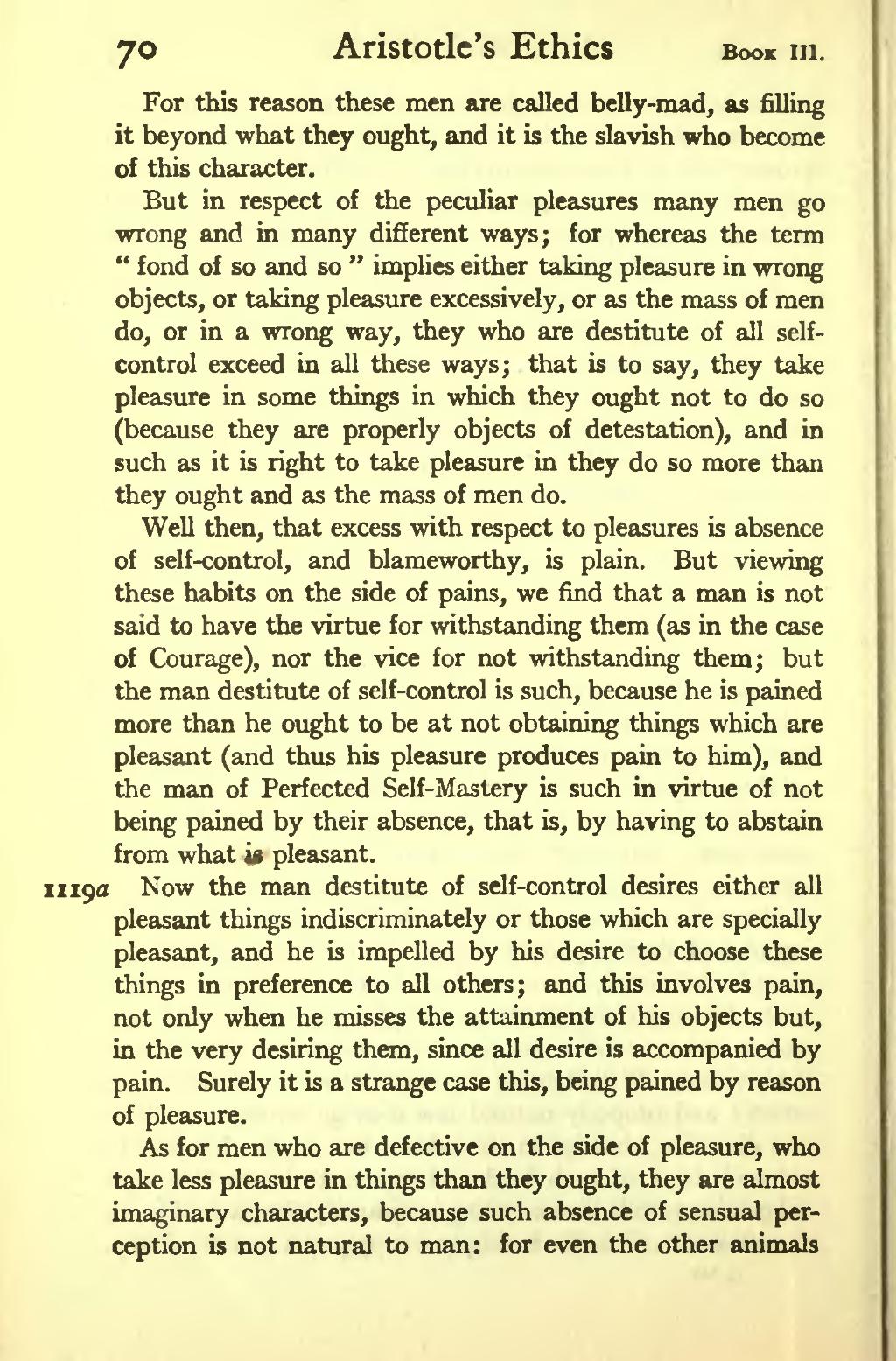For this reason these men are called belly-mad, as filling it beyond what they ought, and it is the slavish who become of this character.
But in respect of the peculiar pleasures many men go wrong and in many different ways; for whereas the term “fond of so and so” implies either taking pleasure in wrong objects, or taking pleasure excessively, or as the mass of men do, or in a wrong way, they who are destitute of all self-control exceed in all these ways; that is to say, they take pleasure in some things in which they ought not to do so (because they are properly objects of detestation), and in such as it is right to take pleasure in they do so more than they ought and as the mass of men do.
Well then, that excess with respect to pleasures is absence of self-control, and blameworthy, is plain. But viewing these habits on the side of pains, we find that a man is not said to have the virtue for withstanding them (as in the case of Courage), nor the vice for not withstanding them; but the man destitute of self-control is such, because he is pained more than he ought to be at not obtaining things which are pleasant (and thus his pleasure produces pain to him), and the man of Perfected Self-Mastery is such in virtue of not being pained by their absence, that is, by having to abstain from what is pleasant.
1119aNow the man destitute of self-control desires either all pleasant things indiscriminately or those which are specially pleasant, and he is impelled by his desire to choose these things in preference to all others; and this involves pain, not only when he misses the attainment of his objects but, in the very desiring them, since all desire is accompanied by pain. Surely it is a strange case this, being pained by reason of pleasure.
As for men who are defective on the side of pleasure, who take less pleasure in things than they ought, they are almost imaginary characters, because such absence of sensual perception is not natural to man: for even the other animals